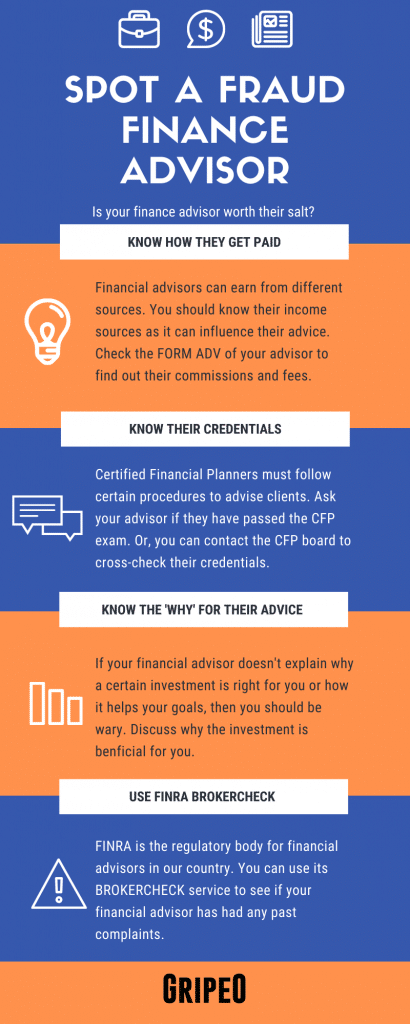John Henry Geary

Background Of John Henry Geary (CRD No. 853462)
Respondent entered the securities industry in 1978. In September 2007, Respondent
became registered with FINRA as a General Securities Representative through an
association with LPL Financial LLC. In December 2007, Respondent became registered
with FINRA as a General Securities Principal through an association with the firm. On
May 15, 2019, the firm filed a Form U5 stating that it had discharged Respondent,
effective April 16, 2019, for “[v]iolation of the Firm’s policy for exercising discretion in
a non-discretionary account.”
In July 2019, Respondent became registered with FINRA as a General Securities
Representative and General Securities Principal through an association with another
FINRA member firm. On October 1, 2020, that firm filed a Form U5 stating that
Respondent had resigned voluntarily, effective October 1, 2020. Respondent is not
currently associated with a FINRA member, but remains subject to F1NRA’s jurisdiction
pursuant to Article V, Section 4 of FINRA’s By-Laws.
Respondent does not have any relevant disciplinary history.
Activity(s) Reported – John Henry Geary
This matter originated from LPL’s Form U5 filing.
A. Respondent Exercised Discretion Without Written Authorization in a Deceased
Customer’s Account, in Violation of NASD Rule 2510(b) and FINRA Rule 2010.
In November 2018, NASD Rule 2510(b) provided: “[n] . . . registered representative
shall exercise any discretionary power in a customer’s account unless such customer has
given prior written authorization to a stated individual or individuals and the account has
been accepted by the member, as evidenced in writing. ., in accordance with Rule
3010.”
FINRA Rule 2010 states that “[a] member, in the conduct of its business, shall observe
high standards of commercial honor and just and equitable principles of trade.” A
violation of NASD Rule 2510(b) also constitutes a violation of F1NRA Rule 2010.
In November 2018, LPL prohibited registered representatives from using discretion in a
brokerage account, except for time and price discretion. However, on November 21,
2018, Respondent sold 500 shares of a stock from a customer’s brokerage account
without discussing the transaction with the customer on the date of the trade.
Unbeknownst to Respondent, the customer had passed away two days before Respondent
effected the transaction.
Therefore, Respondent violated NASD Rule 2510(b) and FINRA Rule 2010.
B. Respondent Willfully Failed to Timely Amend His Form U4 to Disclose Three Tax Liens in Violation of Article V, Section 2(c) of FINRA’s By-Laws and FINRA Rules 1122 and 2010.
Article V, Section 2(c) of FINRA’s By-Laws requires that associated persons keep their
Form U4 “current at all times,” and that amendments be filed “not later than 30 days after
learning of the facts or circumstances giving rise to the amendment.” FINRA Rule 1122
states that “[n]o . person associated with a member shall file with FINRA information
with respect to . . . registration which is incomplete or inaccurate so as to be misleading, or which could in any way tend to mislead, or fail to correct such filing after notice
thereof.” A violation of Rule 1122 also violates Rule 2010.
At all relevant times, the firm’s written supervisory procedures (WSPs) required
registered representatives “to keep [ ] Form U4 information current and accurate.” The
WSPs listed events that had to be disclosed within 30 days, including “[a]ll judgments
and Miens . . . (e.g., civil judgments, tax liens, etc.).”
At all times during the Relevant Period, Form U4 Disclosure Question 14M asked: “Do
you have any unsatisfied judgments or liens against you?”
On or about November 19, 2015, Respondent became aware that the IRS had filed a
$70,242 tax lien against him. Respondent belatedly disclosed this lien on his Form U4 on
January 12, 2016, after FlNRA inquired with the firm about it in November 2015.
On or about August 17, 2016, Respondent became aware that the IRS had filed a $19,419
tax lien against him. Respondent belatedly disclosed this lien on his Form U4 on July 12,
2017, after the firm identified the lien and asked him about it.
On or about July 5, 2017, Respondent became aware that the IRS had filed a $55,900 tax
lien against him. Respondent belatedly disclosed this lien on his Form U4 on April 4,
2019, after FINRA inquired with the Firm about it in March 2019.
The IRS released all of Respondent’s liens after he satisfied his tax liabilities.
By willfully failing to timely disclose the three federal tax liens, Respondent violated
FINIRA Rules 1122 and 2010 and Article V, Section 2(c) of F1NRA’s By-Laws.
Can you expose the broker trying to trick you?
FINRA offers the free web tool BrokerCheck, which allows users to check a broker’s credentials, registration, and employment history. The disclosure part of BrokerCheck includes information on client conflicts, disciplinary proceedings, and specific financial and legal issues on the broker’s record.
Penalties And Sanctions
A 30-calendar-day suspension from associating with any FINRA member in any capacity and A $5,000 fine.
The fine shall be due and payable either immediately upon reassociation with a member
firm or prior to any application or request for relief from any statutory disqualification
resulting from this or any other event or proceeding, whichever is earlier.
Respondent specifically and voluntarily waives any right to claim an inability to pay, now
or at any time after the execution of this AWC, the monetary sanction imposed in this
matter.
Respondent understands that if he is barred or suspended from associating with any
FlNRA member, he becomes subject to a statutory disqualification as that term is defined
in Article III, Section 4 of F1NRA’s By-Laws, incorporating Section 3(a)(39) of the
Securities Exchange Act of 1934. Accordingly, he may not be associated with any FINRA member in any capacity, including clerical or ministerial functions, during the
period of the bar or suspension. See FINRA Rules 8310 and 8311.
Respondent understands that this settlement includes a finding that he willfully omitted to
state a material fact on a Form U4, and that under Section 3(a)(39)(F) of the Securities
Exchange Act of 1934 and Article III, Section 4 of FINRA’s By-Laws, this omission
makes him subject to a statutory disqualification with respect to association with a
member.
Recent Activity(s)Of The Individual/Firm
In November 2018, while associated with LPL, Respondent exercised discretion without
written authorization and effected a stock sale in a customer account, in violation of
NASD Rule 2510(b) and FINRA Rule 2010.
Additionally, between November 2014 and April 2019, Respondent willfully failed to
timely amend his Uniform Application for Securities Industry Registration or Transfer
(Form U4) to disclose that he was the subject of three tax liens, totaling approximately
$146,000, in violation of Article V, Section 2(c) of FINRA’s By-Laws and F1NRA Rules
1122 and 2010.
How To Spot A Fraud Finance Advisor (Infographic)

Help For Victims Of John Henry Geary
If you have lost funds because of misrepresentation, unsuitable investment, or unsuitable investment strategy from John Henry Geary. Then you can take legal action and get justice. Fraud, Malpractice & dereliction of duty should not be taken lightly, especially in this industry. We highly suggest that you notify authorities or seek legal action if your financial advisor or brokerage firm fails to abide by FINRA’s rules are regulations.
Financial advisors are regulatory & legally obligated to suggest (recommend) the most suitable investments/investment strategies to their clients. Their suggestions should have their client’s best interests and should be appropriate for their client’s goals and needs. Similarly, the brokerage firm which hires financial advisors also has a regulatory & legal obligation to keep a close watch and supervise their Financial Advisors’ practices & behavior. They need to make sure that the financial advisor is not being manipulative or having an unreasonable bias towards certain investments. If the financial advisor and/or the brokerage firm breaches these duties, then the client/customer may be entitled to a full or partial recovery of their losses.
Financial advisors need to have the interest of their clients when giving suggestions related to investments and investment strategies. Reasonable basis suitability requires the advisor to do their best to analyze & identify the risks and rewards associated with their suggested investment and/or investment strategy.







